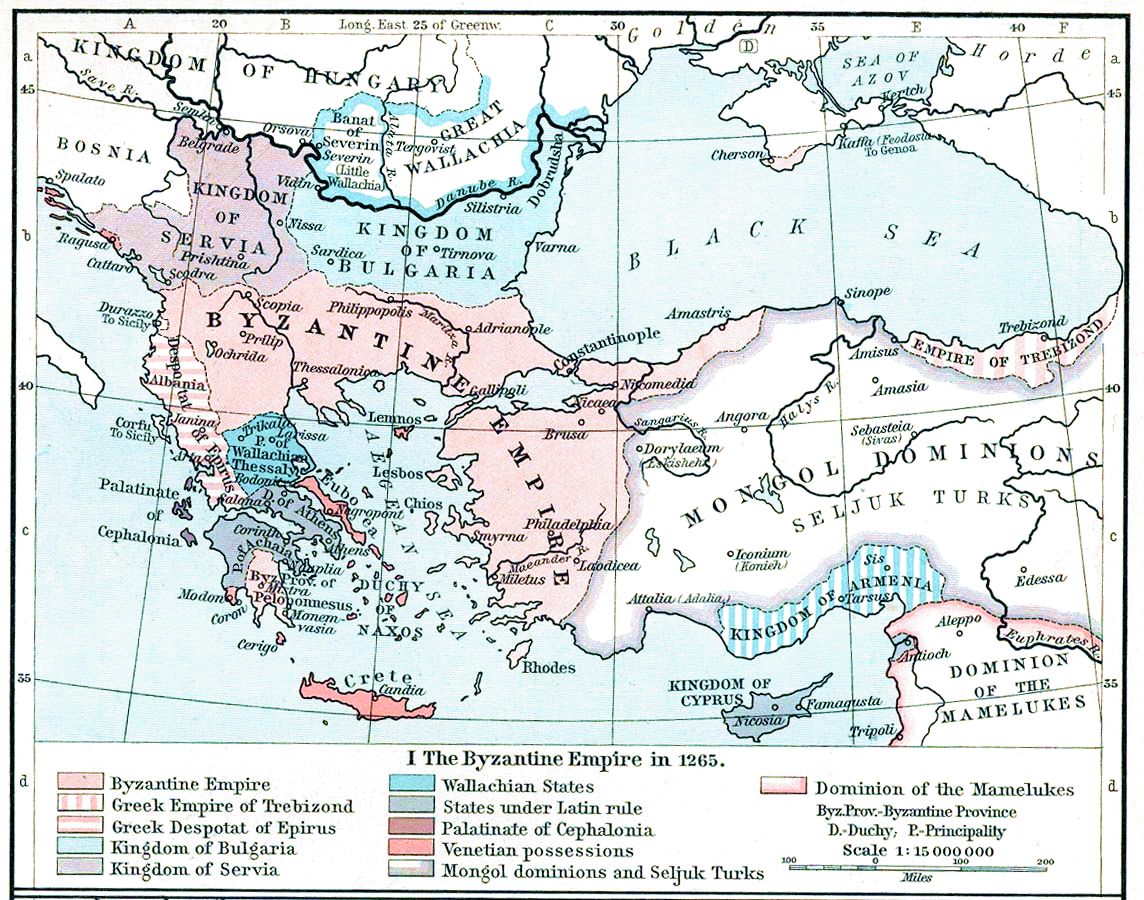(20) For descriptions of these places see Epirus, pp. 268 and 90.
(21) This work, sometimes called The Chronicle of Epirus, is published in the CSHB.
(22) For these places and their strategic importance see Epirus, p. 194 (Vela); p 186 (Vrousina); pp. 197 f. and 695 (Dhespotikon); with maps 7 and 18.
(23) C. N. Sathas, Documents inedits relatifs a l'histoire grecque au Moyen Age 2, p. 79 (no. 298) .
(24) Ducas 23, 8 (CSHB) called them "a race beyond number."
(25) E Kirsten (loc. cit , note 18) is of this opinion, n. 110, "die Geschichte der albanischen Landnahme in Aetolien, Akarnanien, dann bei Korinth . . . zeigt, dass die Bewegung auf der Westseite Griechenlands verlief und Mittel-griechenland von SW her erreichte."
(26) Another indication is provided by the distribution of Slavonic place-names. These were (before the rule of Metaxas) frequent in the canton of loannina, rare in that of Arta, and rarer still in that of Preveza, being displaced predominantly by Albanian place-names such as Toskesi and Ljapokhori. See Epirus. p. 27, n. 2.
(27) See Epirus, p 195.
(28) For these places see Epirus, p. 20, map 1, and p. 31, where I suggested that Zagorie included at one time the valley of the middle Aous from Permet to Konitsa and so linked up with Zagori. This may have been so in 1399.
(29) The document is cited in Sp. Lambros, Palaiologeia kai Peloponesiaka 3, p. 195.
(30) C. N. Sathas (op, cit., note 23) 9, p. 144.
(31) So described in a letter of Luc Notaras in Sp. Lambros, Onomatologia tes Attikes, p. 13.
(32) Joseph Campbell, Myths to Live by (New York, 1972) p. 176.
(33) Sathas (op, cit,, note 23) 9, p. 144; Ducas 45.12 (CSHB).
(34) Sathas (op. cit., note 23) 2, p. 79, qui cum equis volent venire; and Ljubic, Listine 10 no. 467, p 445, ut equitent et stent in castris apud te ad obedentiam tuam.
(35) So B. Randolph, an early traveller, cited by F W. Hasluck in "Albanian Settlements in the Aegean Islands,' BSA 15 (1908-9). I am indebted to this article in what follows.
(21) This work, sometimes called The Chronicle of Epirus, is published in the CSHB.
(22) For these places and their strategic importance see Epirus, p. 194 (Vela); p 186 (Vrousina); pp. 197 f. and 695 (Dhespotikon); with maps 7 and 18.
(23) C. N. Sathas, Documents inedits relatifs a l'histoire grecque au Moyen Age 2, p. 79 (no. 298) .
(24) Ducas 23, 8 (CSHB) called them "a race beyond number."
(25) E Kirsten (loc. cit , note 18) is of this opinion, n. 110, "die Geschichte der albanischen Landnahme in Aetolien, Akarnanien, dann bei Korinth . . . zeigt, dass die Bewegung auf der Westseite Griechenlands verlief und Mittel-griechenland von SW her erreichte."
(26) Another indication is provided by the distribution of Slavonic place-names. These were (before the rule of Metaxas) frequent in the canton of loannina, rare in that of Arta, and rarer still in that of Preveza, being displaced predominantly by Albanian place-names such as Toskesi and Ljapokhori. See Epirus. p. 27, n. 2.
(27) See Epirus, p 195.
(28) For these places see Epirus, p. 20, map 1, and p. 31, where I suggested that Zagorie included at one time the valley of the middle Aous from Permet to Konitsa and so linked up with Zagori. This may have been so in 1399.
(29) The document is cited in Sp. Lambros, Palaiologeia kai Peloponesiaka 3, p. 195.
(30) C. N. Sathas (op, cit., note 23) 9, p. 144.
(31) So described in a letter of Luc Notaras in Sp. Lambros, Onomatologia tes Attikes, p. 13.
(32) Joseph Campbell, Myths to Live by (New York, 1972) p. 176.
(33) Sathas (op, cit,, note 23) 9, p. 144; Ducas 45.12 (CSHB).
(34) Sathas (op. cit., note 23) 2, p. 79, qui cum equis volent venire; and Ljubic, Listine 10 no. 467, p 445, ut equitent et stent in castris apud te ad obedentiam tuam.
(35) So B. Randolph, an early traveller, cited by F W. Hasluck in "Albanian Settlements in the Aegean Islands,' BSA 15 (1908-9). I am indebted to this article in what follows.










Comment